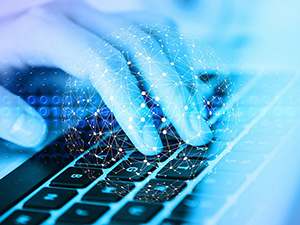 Artificial Intelligence (AI) tools like ChatGPT and Microsoft Co-Pilot are transforming the way businesses operate, offering new levels of efficiency, creativity, and automation. These AI-driven platforms help users draft documents, manage workloads, and provide real-time insights that streamline operations. However, with great potential comes great responsibility—especially when it comes to securing sensitive data. As organizations increasingly adopt these tools, data security controls must become a priority to mitigate risks such as data breaches, regulatory non-compliance, and unintended data exposure.
Artificial Intelligence (AI) tools like ChatGPT and Microsoft Co-Pilot are transforming the way businesses operate, offering new levels of efficiency, creativity, and automation. These AI-driven platforms help users draft documents, manage workloads, and provide real-time insights that streamline operations. However, with great potential comes great responsibility—especially when it comes to securing sensitive data. As organizations increasingly adopt these tools, data security controls must become a priority to mitigate risks such as data breaches, regulatory non-compliance, and unintended data exposure.
Data Privacy and Confidentiality
AI tools like ChatGPT and Microsoft Co-Pilot often process vast amounts of data, including personal, proprietary, and sensitive business information. If this data is not properly secured, organizations could inadvertently expose themselves to significant privacy risks. Sensitive data falling into the wrong hands could lead to identity theft, competitive disadvantage, or reputational damage.
One of the core concerns is that these AI tools need to access and process large volumes of data to perform effectively. If this data is stored or transmitted insecurely, there’s a potential risk of exposure. This makes it critical for organizations to ensure that AI tools are designed with end-to-end encryption and data anonymization techniques to protect information in transit and at rest.
Access Control
The more powerful the tool, the more attention should be paid to who has access to it. AI platforms are not immune to misuse, whether intentional or unintentional. For example, employees with unrestricted access to these AI tools may inadvertently upload sensitive company data into the system, which could be stored or used in ways that violate company policies or data privacy laws.
Role-based access control (RBAC) should be implemented to ensure that only authorized personnel can access specific AI functionalities and data. Limiting permissions ensures that only those who absolutely need access to sensitive data can view or manipulate it, minimizing the risk of internal data breaches.
Data Governance and Compliance
Compliance with regulations like GDPR, HIPAA, and CCPA is an increasingly complex challenge for organizations adopting AI technologies. These regulations require organizations to ensure that data is stored, processed, and deleted in ways that maintain user privacy and security.
Organizations must assess the AI tools they are using to ensure they are compliant with relevant laws and regulations. ChatGPT, Microsoft Co-Pilot, and other AI-driven tools need to have clear policies around data retention, use, and sharing. It’s also essential to monitor AI vendors for compliance with legal frameworks. If these tools don’t adhere to data security and privacy laws, organizations risk facing fines, legal actions, and reputational damage.
Training and Awareness
While technical controls are vital, human error remains one of the largest threats to data security. Employees must be trained to use AI tools responsibly and be made aware of the risks associated with improper data handling. Regular training sessions on cybersecurity best practices, such as recognizing phishing attempts and adhering to data classification guidelines, can reduce the likelihood of accidental data leaks or misuse.
Moreover, employees should be educated on the specific risks associated with AI tools. For instance, they should understand the importance of not sharing confidential information in AI-generated reports or chats and how to safeguard data when interacting with these systems.
Protecting Vital Data
As AI tools like ChatGPT and Microsoft Co-Pilot continue to revolutionize business processes, the need for robust data security controls is more critical than ever. Protecting sensitive information from unauthorized access, ensuring compliance with data privacy laws, and fostering a security-first mindset are all essential components of a successful AI integration strategy. By adopting comprehensive security measures, organizations can harness the benefits of AI while minimizing risks, ensuring that innovation and data protection go hand in hand.
If you want to learn more about protecting the data that’s most important to you and your organization, give us a call today!



